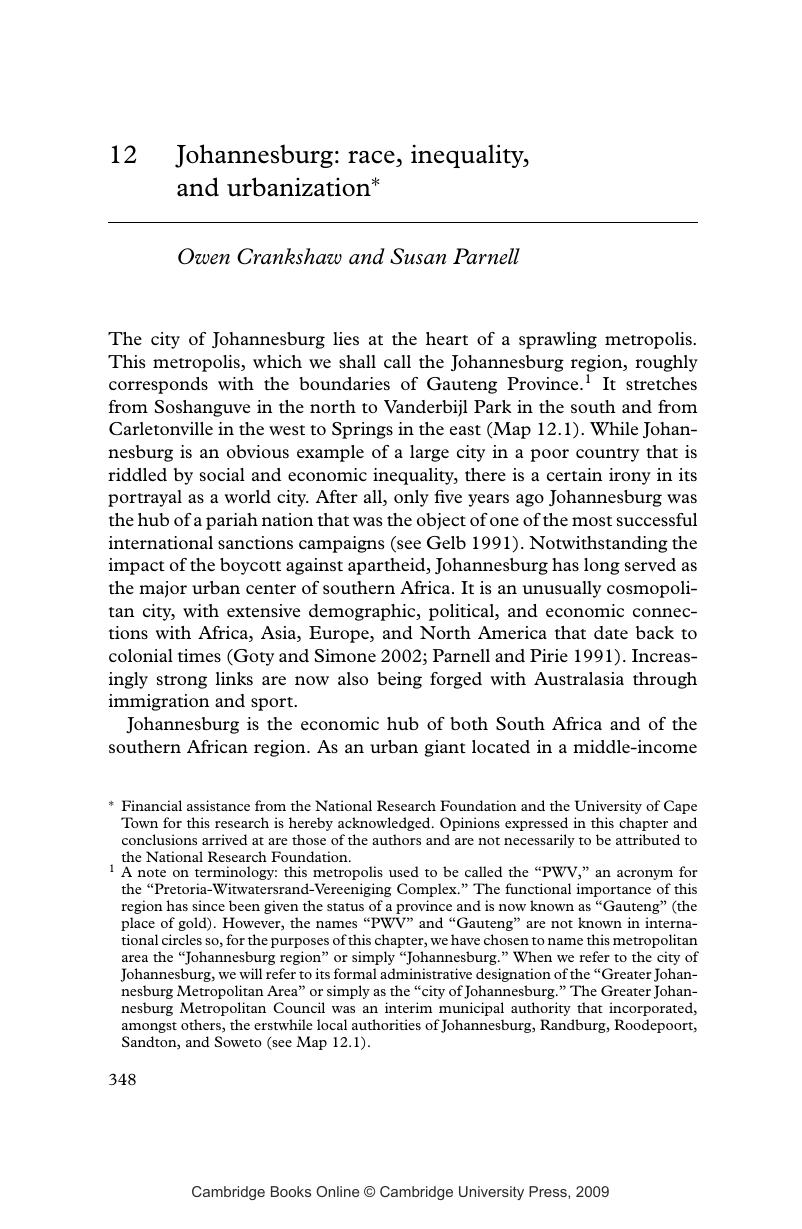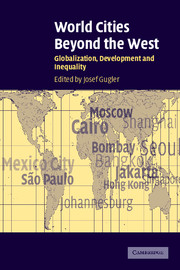Book contents
- Frontmatter
- Contents
- List of figures
- List of maps
- List of tables
- List of contributors
- Acknowledgments
- World cities beyond the West
- Introduction
- Part 1 The impact of the global political economy
- Part 2 The impact of the state
- Part 3 The impact of popular movements
- 10 São Paulo: the political and socioeconomic transformations wrought by the New Labor Movement in the city and beyond
- 11 Bombay/Mumbai: globalization, inequalities, and politics
- 12 Johannesburg: race, inequality, and urbanization
- Afterword
- Index
- References
12 - Johannesburg: race, inequality, and urbanization
Published online by Cambridge University Press: 12 October 2009
- Frontmatter
- Contents
- List of figures
- List of maps
- List of tables
- List of contributors
- Acknowledgments
- World cities beyond the West
- Introduction
- Part 1 The impact of the global political economy
- Part 2 The impact of the state
- Part 3 The impact of popular movements
- 10 São Paulo: the political and socioeconomic transformations wrought by the New Labor Movement in the city and beyond
- 11 Bombay/Mumbai: globalization, inequalities, and politics
- 12 Johannesburg: race, inequality, and urbanization
- Afterword
- Index
- References
Summary

- Type
- Chapter
- Information
- World Cities beyond the WestGlobalization, Development and Inequality, pp. 348 - 370Publisher: Cambridge University PressPrint publication year: 2004
References
- 13
- Cited by

